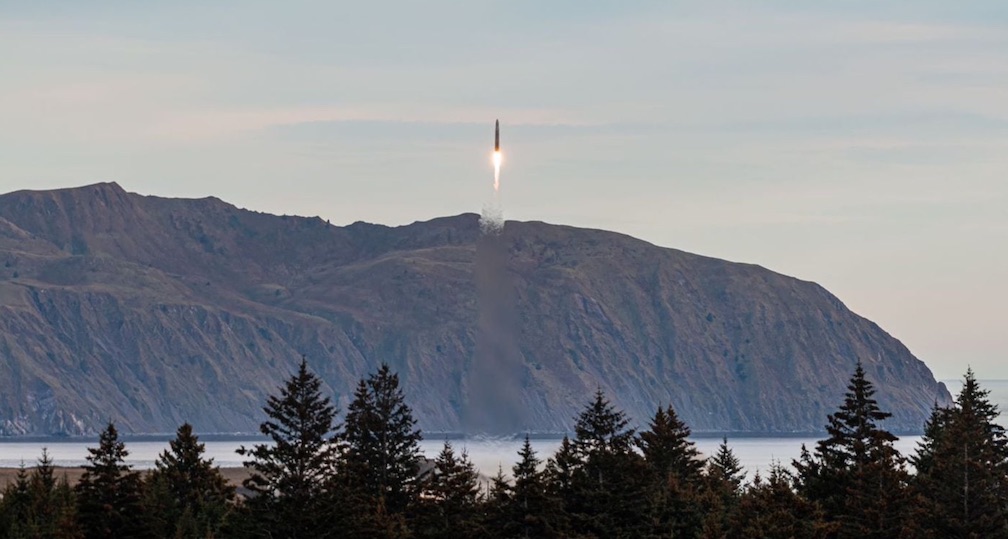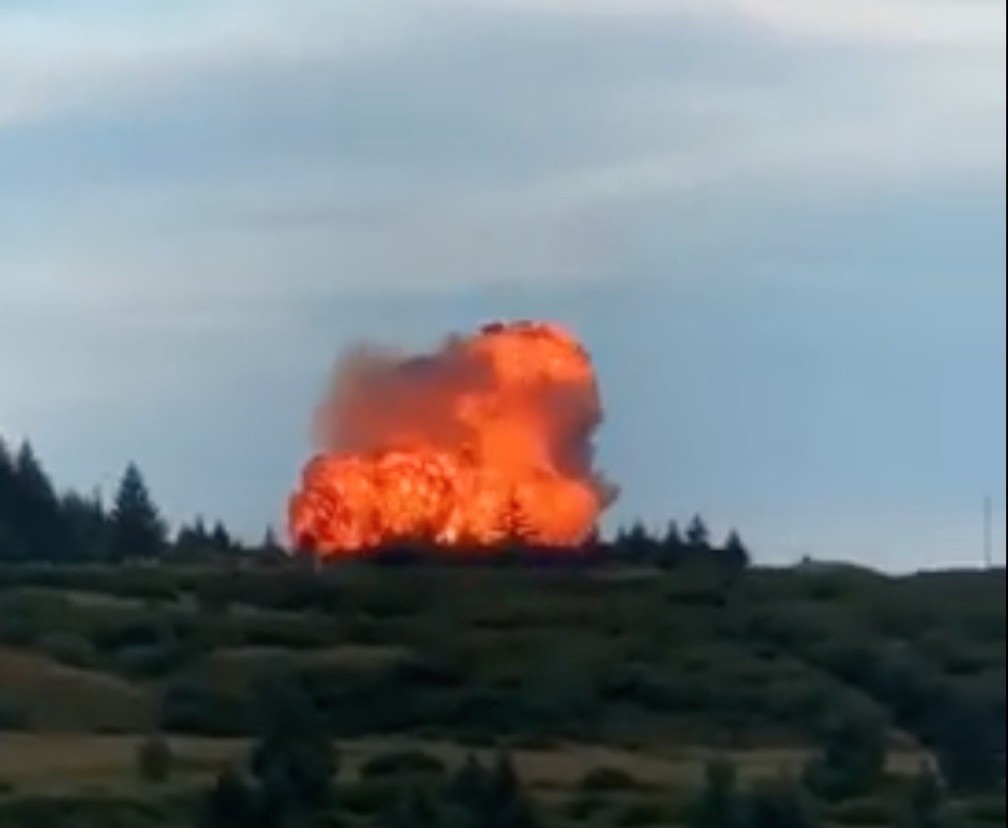On Friday evening a rocket designed and built in less than a week left the Pacific Spaceport Complex on Kodiak Island and soared as expected — until it didn’t, and ended in a spectacular crash.

About 20 seconds into the flight, the rocket started oscillating and the mission was scrubbed, leading to the vehicle returning to earth where it met its fate in a fiery explosion, which was quickly contained.
Video of the impact was taken by Eric Van Dongen, who had been deer hunting nearby with his father Marc Van Dongen.
“Rocket launch in Kodiak, Alaska. Pretty cool,” Eric narrated. As the rocket fell back to earth, Marc can be heard saying it was heading to the place where the two had been hunting. After impact, a powerful shock wave boomed across them and the others who were gathered to watch.
“Holy mackerel, that’s unbelievable,” Marc can be heard exclaiming.
Eric Van Dongen Facebook video
The company that built the rocket says the launch was a success nonetheless. On its blog, Astra co-founders Chris Kemp and Adam London wrote:
“We’re excited to have our first orbital attempt under our belt! As we’ve always said, we expect it to take three flights to make it to orbit. Tonight, we saw a beautiful launch! Preliminary data review indicates the rocket performed very well. Early in the flight, our guidance system appears to have introduced some slight oscillation into the flight, causing the vehicle to drift from its planned trajectory leading to a commanded shutdown of the engines by the flight safety system. We didn’t meet all of our objectives, but we did gain valuable experience, plus even more valuable flight data. This launch sets us well on our way to reaching orbit within two additional flights, so we’re happy with the result.
“We are incredibly proud of what the team accomplished today. This was our first orbital launch attempt, and the first flight of a rocket designed from the ground-up for low cost mass production and highly-automated launch operations. The entire launch system was deployed by six people in less than a week – completely unprecedented.”
The company will be poring through launch data and making adjustments for the next launch. Astra began business in 2016 and by 2020 had built the Astra Space Port on Kodiak at the Pacific Spaceport Complex.
“We’ll be back to the pad before you know it,” they wrote.
